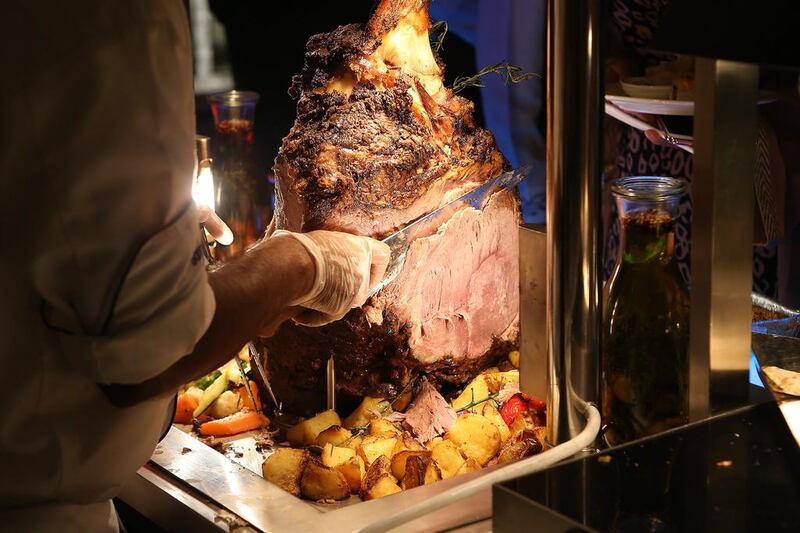Food is much more than the fuel we depend on for survival: food brings happiness, because it plays an integral role in our social and cultural life.
The holy month of Ramadan reminds us of how the absence of food and water affects our daily lives. Not only must we make more effort to fulfil our daily activities, we also temporarily forgo the pleasure of time spent with friends, colleagues, and of course family, enjoying a coffee or a meal during daylight hours. Ramadan, through our days of effort and nights of sharing, highlights that food is much more than the fuel we depend on for survival. Food nourishes happiness, because it plays an integral role in our social and cultural life. Food can remind us of our childhood, it reminds us of home; like Proust’s famous madeleine, a seemingly random taste can prompt a long-forgotten memory to resurface.
However, underlying our ability to buy, eat, share and enjoy food is something we rarely think about – and that is food security.
Food security is not just a feeling we enjoy. It’s a policy based on a very strict definition. The United Nations Food and Agriculture Organisation (FAO) classifies food security along four dimensions, availability, utilisation, access, and stability, where availability refers to the supply of adequate calories; utilisation denotes dietary deficiencies, for example of certain vitamins or sanitation facilities; access is both physical and economic; and stability reflects the level of imports as well as the domestic political environment.
It is not simply by chance that the UAE, which less than 50 years ago was a desert, has achieved a high level of food security. It is thanks to the vision of Sheikh Zayed, the country’s founding father, who understood both the need to ensure the sustainable use of the nation’s resources and to establish basic industries to ensure self-sufficiency. Flour Mills and Animal Feed Company – now known as Grand Mills – was created in 1978 to fulfil an important part of the UAE’s objective of providing food security to its people, and since then, industrial development has become a critical pillar in the UAE’s growth strategy, spawning strong government conglomerates, a thriving private sector that welcomes companies from all over the world, and an advanced regulatory landscape that maintains high quality while ensuring ease of entry.
As a result, the availability of food in the UAE is extremely high despite the prevailing natural barriers to growing most food items. Agthia, a partner of the government in ensuring food security, is a significant contributor to the country’s cereal and protein supply, two of the main indicators of food availability.
As the owner of Grand Mills, it produces near 300,000 tons a year of flour, more than a quarter of the country’s total demand, while 570,000 tons, or 517 million kg of meat, dairy and eggs are produced from animals that directly use Agthia’s animal feed products, representing a significant proportion of the nation’s 660 million kg meat consumption. Meanwhile, fortifying foodstuffs with vitamins and minerals, as Agthia does to its flour and dairy products, adding vitamin D and calcium, counters utilisation indicators such as the prevalence of undernourishment, anaemia and vitamin A deficiency.
In terms of physical access to food, UAE residents are fortunate enough to receive foods from every corner of the globe, from Pakistani mangos to Devonshire clotted cream. This is because the country has so resolutely developed its infrastructure that it ranks among the best in the world: according to the Global Competitiveness Report, an annual assessment of the factors driving productivity and prosperity in 138 countries published by the World Economic Forum, the UAE sits in third place for the quality of its port infrastructure, second for its air transport infrastructure, and first for the quality of its roads.
Stability – whose indicators include the cereal import dependency ratio, the percent of arable land equipped for irrigation, the value of food imports over total merchandise exports – is the one dimension of food security that the UAE needs to show continuous vigilance because as a desert nation, it relies on external sources for food supply.
The UAE’s strategies to manage this risk are similar to our oil importing peers in Europe and Asia and their energy security policies. First of all, just as they maintain strategic petroleum reserves for emergencies, the UAE keeps reserves of water and grain: Agthia is required by the Abu Dhabi government to maintain excess stores of Al Ain water. Secondly, we diversify our supplies: Agthia is establishing bottling plants in other GCC countries to multiply water sources, and instead of depending on a single geography for cereal imports, grains are sourced from Canada, the US, Argentina, Europe, and Australia. And thirdly, we try and secure the raw materials themselves: Agthia rents a natural spring in Turkey.
In terms of long-term sustainability, however, there are several initiatives that are just beginning or have not even started yet. Some of these focus on conservation and recycling: managing food waste by redistributing it through the newly established UAE Food Bank, reducing waste in operations and manufacturing of food, and reusing treated wastewater. Others depend on R&D, like exploring forage that can grow in dry climates such as ours.
And of course, we try and produce what we can locally, such as Agthia’s new locally raised range of fresh chicken.
Over the coming months, we will be looking into innovative ways the UAE and others are considering food and food security, an issue that Sheikh Khalifa, the President, places at the top of the nation’s policy priorities.
Tariq Al Wahedi is the chief executive at Agthia





